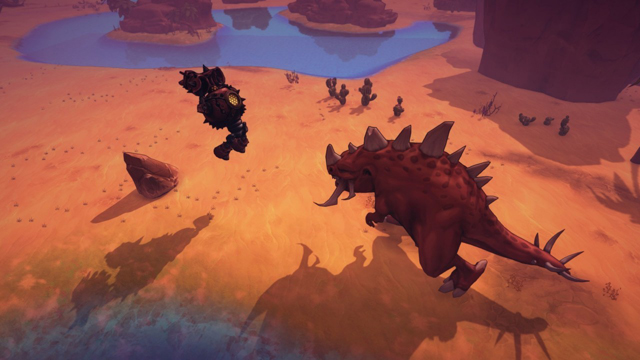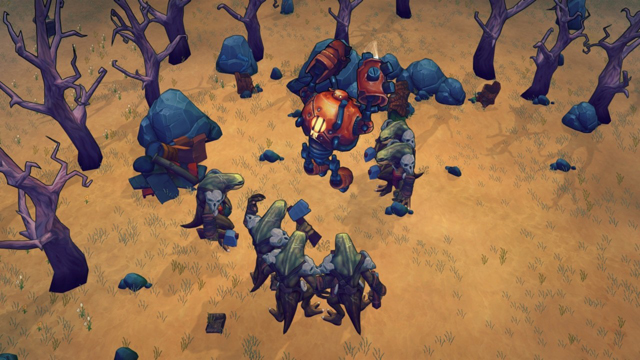Evangeli-ennui.
Goliath, the first commercial release from Siberian developer, Whalebox Studio, unsurprisingly makes me think of the film, The Iron Giant—the first goliath you build, the wood one, though squat in stature, has a similarly charming hinged jaw with large, glowing eyes. And overall, the concept of building giant robots to explore a vast open-world RPG sounds similarly appealing. Yet despite the core concept being so strong and attractive, shortcomings, bugs, and a general lack of flair overcome the charms. The end product, though moderately entertaining, feels disappointingly lifeless for all of its efforts.
You play as Gromov, a young pilot who crash-lands in a world wholly unlike the Earth we know. It is a dense forest on a large, floating island with similarly otherworldly creatures threatening to harm our protagonist. Eventually, Dave, who insists he was Gromov’s co-pilot, chimes in on the plane’s radio, claiming to be lost on another one of these islands somewhere, and helps Gromov’s adventure begin. In order to protect himself, he’ll need to form a suit of armor in the shape of a large, wood goliath, and he’ll need to get a teleporter functioning again.
The goliaths are a neat concept. By collecting crafting materials, Gromov can build them and “carry” up to three of them around, switching in and out of them like battle suits on the fly. (No, I have no idea where he stores them.) And though the game itself doesn’t tell you this explicitly—I learned by checking the controls—he can also step out of them, using them as AI-controlled guards while he’s in another goliath or just out on land. I found myself playing with only one goliath for the majority of the game, but teaming up came in handy a few times.
Elemental properties also play a part. Each island you visit has its own ecosystem, and each goliath responds to different elements and weather conditions differently. The wooden goliath you build in the beginning can be healed by stepping in water or walking under rain. Eventually, when you create a stone goliath, the heat of the desert or being burned by an enemy’s fire breath will increase its traversal and combat speed. Each major type of goliath is unlocked through the story, often via an unceremonious mission subtask that just requires it in order to proceed. Admittedly, it would be nice if there was some logical step to discovering the blueprints for these instead of them acting as destined roadblocks to your missions.
You can unlock sub-types of goliath by completing various tasks, such as slaying enemies in specific ways, reaching certain experience levels, or playing around with elemental effects. There are four pieces—head, body, hands, and feet—to unlock for each, but they can be mixed and matched. Experiments, as they are called in the menu, often have very different elemental properties than their progenitors. The first one you should discover is the wood and coal one, which sets enemies in proximity on fire and is healed by heat, the complete opposite of the regular ol’ wood one.
Creating goliaths from these experiments is fundamental to succeeding in Goliath, but although moderately interesting, some of the tasks you need to complete to get them can feel very arbitrary, especially considering the complete lack of explanation for them. Like why does killing a specific enemy using only the iron goliath’s jumping attack open the blueprint for anything? My other gripe is that you can’t unlock any pieces of the next experiment in line until you unlock all four pieces of the one before it. Given that I experienced one condition that refuses to trigger, this can feel very limiting, especially if the task leads you away from normal gameplay.
Enemies in Goliath vary as you progress through the story, and they eventually layer on top of each other as you enter new environments. You’ll be fighting the same spiders on the first island you teleport to as you will on the twentieth. The further out you go from your origin point, the higher level they will be, of course, though this seems dependent on your experience level more than the story. Leveling yourself often seems really easy, particularly if you play the pugilist with every creature who crosses your path. But as soon as you enter the next world the main storyline sends you to, every enemy is at your level. You’re just often better equipped, through skills, weapons, or knowledge, to combat them. It reminds me a bit of Bioware RPGs in that sense.
However, enemy AI is mostly like the first Mass Effect, where they all just try to swarm you. Until you reach level 17, the wood goliath’s crowd control ability, which uses vines to lock enemies in place, remains locked, so trying to handle these crowds requires a frustrating amount of strafing until you have a decent opportunity to attack or until one of your other abilities recharges. Of course, depending on the environment, this can lead to a lot of aggro from nearby enemies. Once you have all of them, though, you can swap between goliaths to combine their abilities. Teaming up with the other goliaths in your inventory sounds like a smart idea at first, but their AI doesn’t play to their strengths nor does it utilize defense or special skills. They’re as smart as the enemies, so you could end up with three destroyed goliaths instead of one at a time, which sends you running back to camp.
Gromov, who’s responsible for building these things, has a slog of a quest ahead of him. Obviously, the main objective is to get home, and that clearly should be a challenging one, but the sense of humor the developers tried to instill in his journey works against player enjoyment. Basically, Gromov meets a lot of fantasy characters, either organically or at Dave’s suggestion, who can potentially help. But they all need something. And the conclusion for many of their quest lines is “Oh, no, I can’t really do anything, but maybe this guy can.”
Noticing the pattern (as much as you do), Gromov grows increasingly cynical. All laid out through textual conversations, he starts to quip at the quest givers, showing a measured amount of disdain for needing to handle their ills. The result is that you, too, will become disdainful for having to read a bunch of sporadically funny dialogue to perform simple fetch quests or kill bounties. Later, either due to feeling his goal within reach or, more likely, Stockholm Syndrome, Gromov becomes overly excited about doing these things. It’s a disturbingly plucky roll-with-the-punches attitude that unbalances the tone of the story and exacerbates your own lethargy.
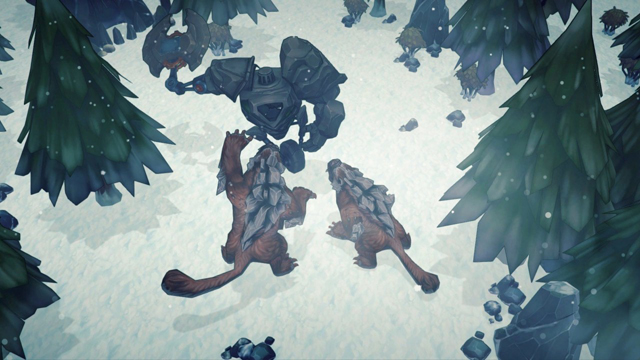
Although there are sidequests, and I handled a few of them, I found them as uninteresting as the main quest, so I mostly avoided them unless I felt like it. The last one I voluntarily took, though, had a bug where I couldn’t obtain the quest item, a bottle of wine for a singing spider. Recent patch notes for the game indicate this has been fixed but requires a complete restart, so that’s a letdown.
Also disappointing is a laughable late-game attempt to make you do sidequests. Without spoiling anything, it becomes necessary to accomplish some major goals yourself by learning from the major factions, but in order to do so, you must build up a reputation with them. How? Doing sidequests. Although you are, of course, open to do whichever of them you wish, it’s as if the developers felt you weren’t doing enough trivial tasks. I felt like rage-quitting right there, as I became just so disillusioned with how the story played out.
Some voiceovers or cut-scenes, whether interactive or not, could’ve gone a long way to maintaining interest here. The combination of an overly cynical protagonist and an alarmingly self-aware plotline that follows RPGs tropes despite its own criticism of them is a completely lackluster experience to begin with. Although I respect the limited budget of an indie studio, I think Whalebox could’ve focused on adding some flair to Goliath that distracts players from wondering, “Why am I doing this?”
The remainder of the package is similarly lackluster or occasionally buggy. The map doesn’t allow you to set waypoints and doesn’t reflect topography, and the mini-map’s pathing system will often try to lead you directly through walls or in needlessly complex directions. The inventory system, though recently patched to allow 100 stackable items versus 40 (thank goodness), is clunky, and your primary storage cannot accommodate the absurd amount of crafting items and weapons you find and earn along the way, the latter of which don’t stack. Character design is actually quite nice, but environments are a hodgepodge of reused object models, and the background music is repetitive. Besides, the peculiar pitch of the camera ensures that you will rarely be zoomed in enough to really appreciate designs much.
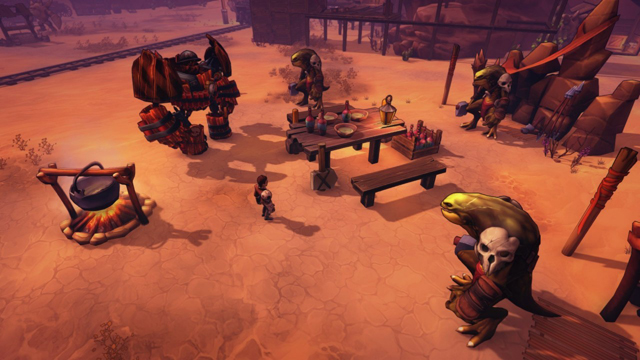
Beyond this, I experienced a lot of random graphic stuttering, some of which has been patched but remains unpredictable. Thankfully, it didn’t cost me in combat. A lot of the text is poorly localized and contains typos. Some of the menus have the wrong button assignments on them. Inventory items occasionally fail to stack, leading to wasted space that can only be resolved by dropping them on the ground and picking them up again. And at one point, the game crashed because I leveled up at the same time that I completed a mission objective, which often prompts a dialog box before you—or apparently the game engine—have a moment to collect yourself. This did cost me some time, a level, and some items, but the decent auto-saving saved me from doing too much backtracking.
I could go on, of course, but the main idea is that Goliath, for having an authentically fun concept is not that much fun itself, venturing into being frustrating and overly cynical. I often thought of other games I’d rather play, not because the experience was that bad but more because it felt like filler. Goliath itself is a task and a rather underwhelming one at that.
-
Great core concept using mechs with various elemental properties
-
Goliath Experiments enhance gameplay greatly
-
Cynical protagonist in self-aware trope-laden story
-
Frustrating point in story where you must perform arbitrary sidequests
-
Lackluster or buggy features
-
Leveling is pretty easy
-
Enemies level with you
-
Charming character design
-
Repetitive environment design and background music
Goliath
-
Goliath #1
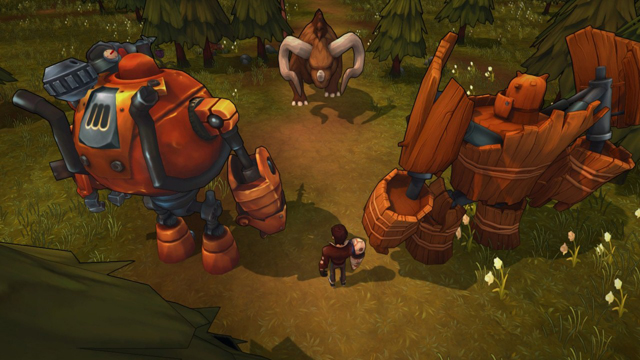
-
Goliath #2
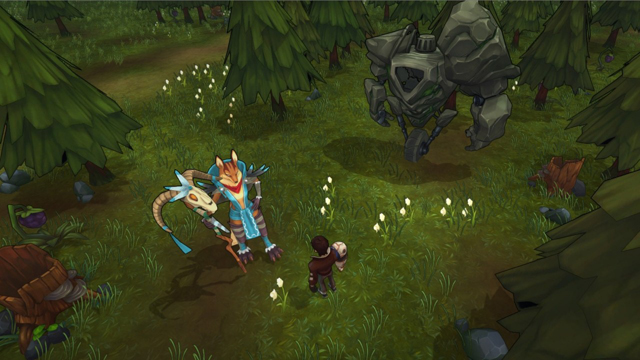
-
Goliath #3
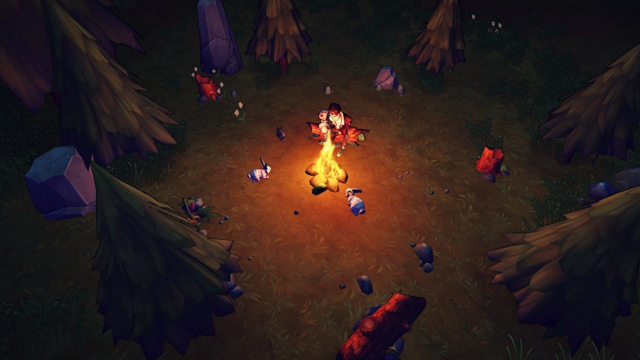
-
Goliath #4
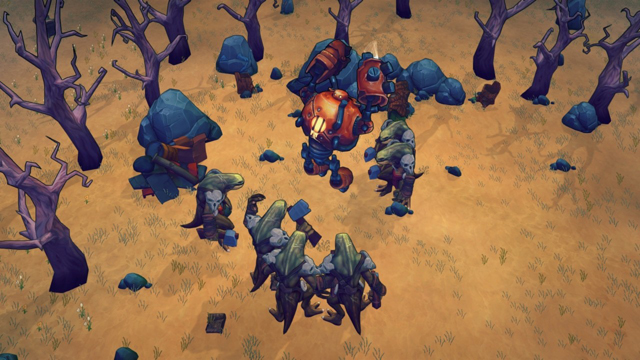
-
Goliath #5
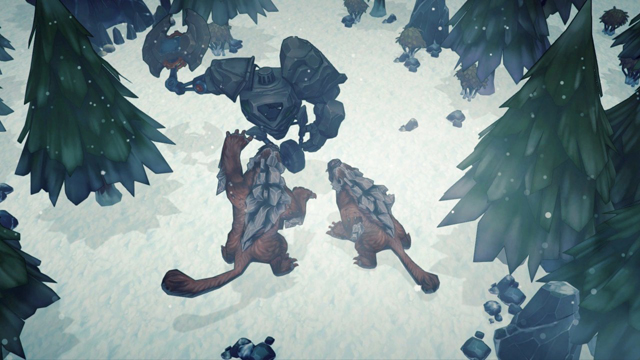
-
Goliath #6
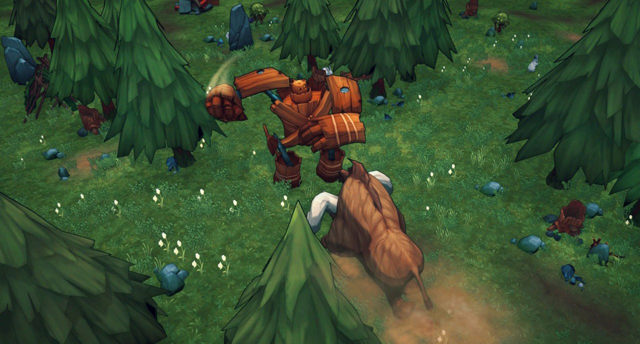
-
Goliath #7
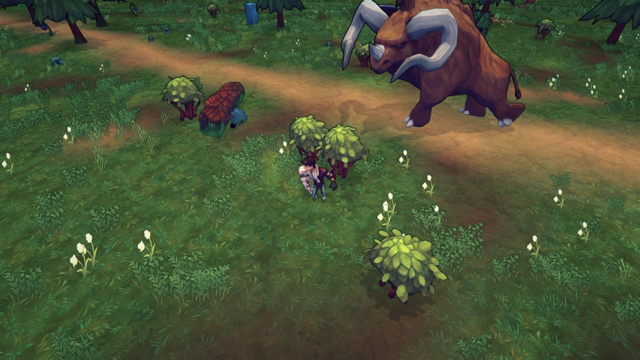
-
Goliath #8
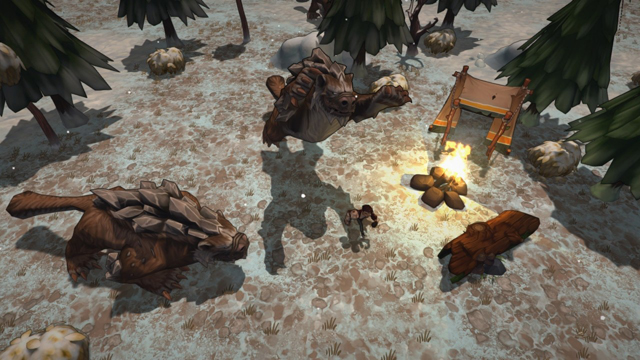
-
Goliath #9

-
Goliath #10
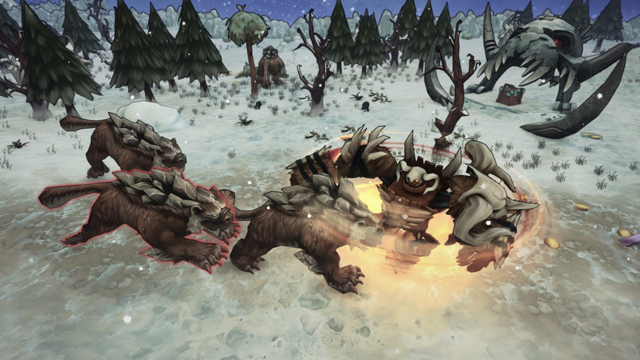
-
Goliath #11
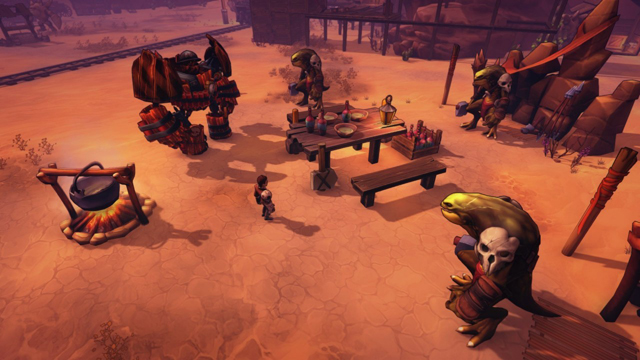
-
Goliath #12
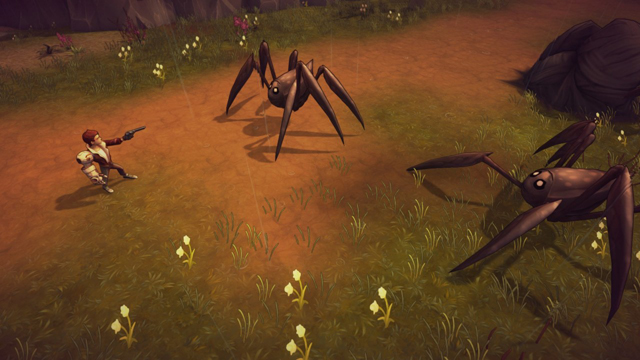
-
Goliath #13
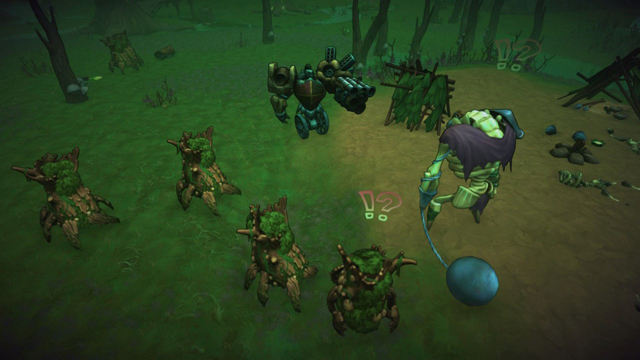
-
Goliath #14
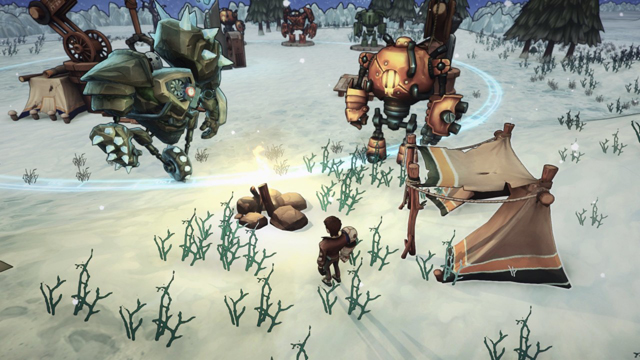
-
Goliath #15
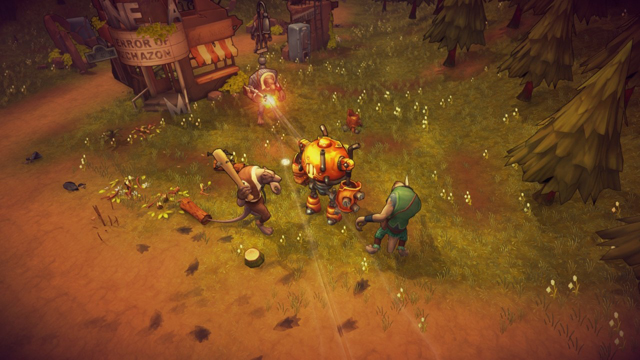
-
Goliath #16
